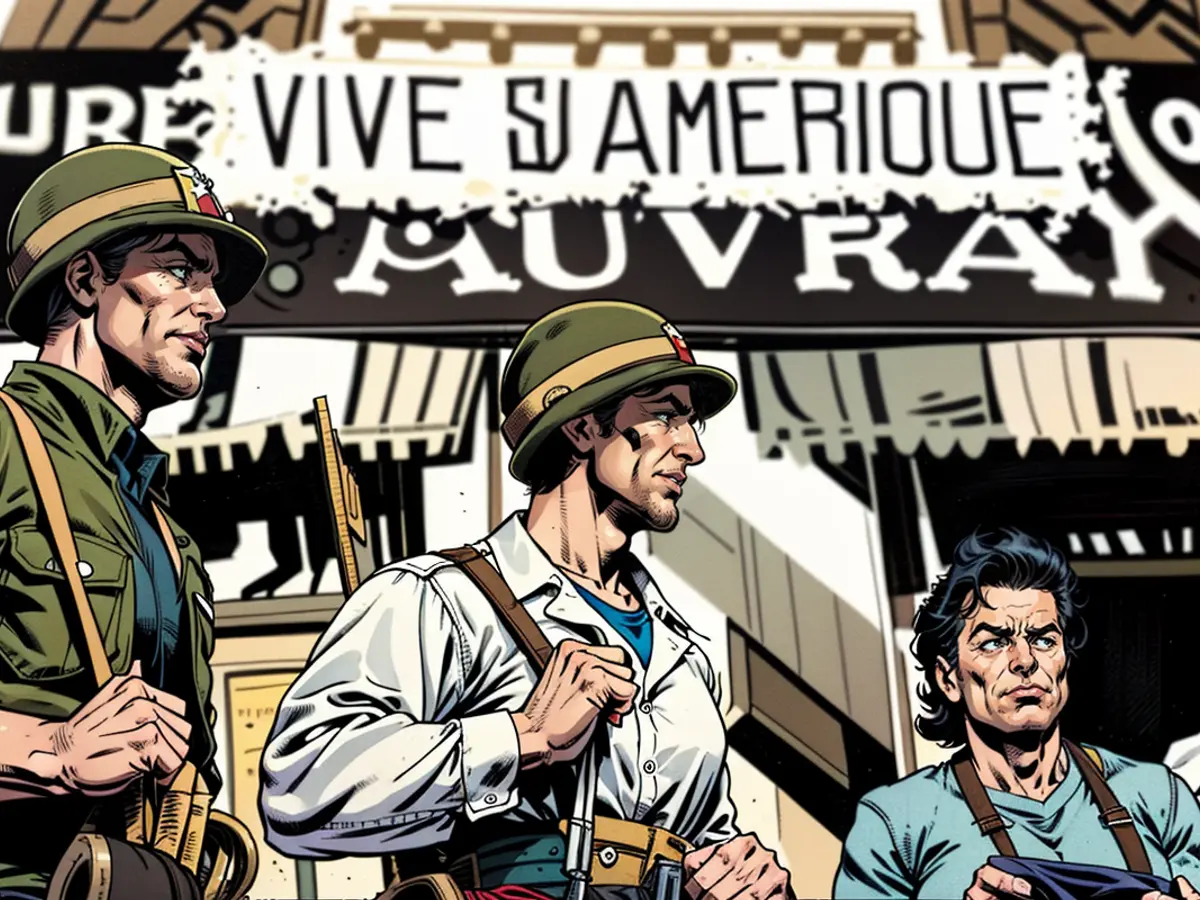Post-D-Day Sexual Assaults - US soldiers were driven to battle due to the potential for intimacy.
For years, ladies in France who were sexually assaulted by American troops at the conclusion of World War II have remained unspoken for out of shame and worry of public embarrassment. Close to the onset of ceremonies marking the 80th anniversary of the Allied landing, the 99-year-old Aimée Dupré opted to speak up about her mother's predicament.
"She gave up herself to protect me," the elderly lady recalls in an AFP interview. She was 19 years old when approximately 156,000 American, British, and French forces landed on the beaches of Normandy on June 6, 1944. D-Day laid the groundwork for the Allies' win over Nazi Germany. The foreign troops were praised as "liberators" who ended the German occupation of France.
A simple joy invaded Aimée's Breton village of Montours at the arrival of the liberators. However, a terrible event would occur that same year, haunting her forever.
Reports of sex crimes after D-Day
On one night in August, two GIs, as the American soldiers were called, suddenly showed up at the family's farm. "They were drunk, they needed a woman," recounts the 99-year-old.
She pulls out a letter from her mother Aimée Helaudais Honoré, which she wrote to keep her memories clear. The US soldiers had approached her daughter, but she had gone out with them to safeguard her, she writes.
"They took me to a field and alternately raped me, each four times," says her daughter, 80 years later. "Mother, you endured such horrible experiences," she whispers. "We waited all night. We didn't know if you would come back or if they would shoot you." The old woman recollects the details.
In October 1944, 152 US soldiers were convicted of raping French women. The number of offenders is likely much larger, estimates historian Mary Louise Roberts, who has investigated the issue. She terms it "one of the great taboos of World War II." "Probably hundreds, if not thousands, of rapes by US soldiers between 1944 and 1946 were not reported," she explains.
"Many women have remained quiet," says Roberts. "Not only due to the shame associated with being raped, but also because it didn't mesh with the jubilant mood surrounding the 'liberators.'"
Roberts attributes this to the advertising method employed by the US military, which openly flirted with French women in exchange for their affection. "The French women are crazy about the Yanks," proclaimed the American military magazine "Stars and Stripes - for which we are battling" in September 1944. It also published numerous images of US soldiers being kissed by French women. "The prospect of sex motivated US soldiers to battle," says Roberts.
The historian has discovered a peculiar aspect during her research: Those punished for rape were almost all black. "Black soldiers were used as scapegoats to protect the reputation of white US soldiers," she clarifies. This lines up with the racist prejudice prevailing in the Southern states that blacks possess an "uncontrollable sexuality." "No one wanted to soil the image of the American hero, whom everyone was so proud of," summarizes the historian.

Read also:
- Despite the praise and celebration of US soldiers as liberators after D-Day, historical accounts suggest that some American troops engaged in acts of sexual assault against French women, with estimates indicating that hundreds, if not thousands, of rapes may have occurred between 1944 and 1946.
- The accusations against US soldiers reached a peak in October 1944, when 152 soldiers were convicted of raping French women, but historian Mary Louise Roberts believes that the actual number is significantly higher due to underreporting and societal taboos.
- The racial bias of the time played a role in the cases that were reported and prosecuted, as a disproportionate number of black soldiers were accused and convicted, reflecting the persistent racial stereotypes that existed in the United States during and after World War II.







